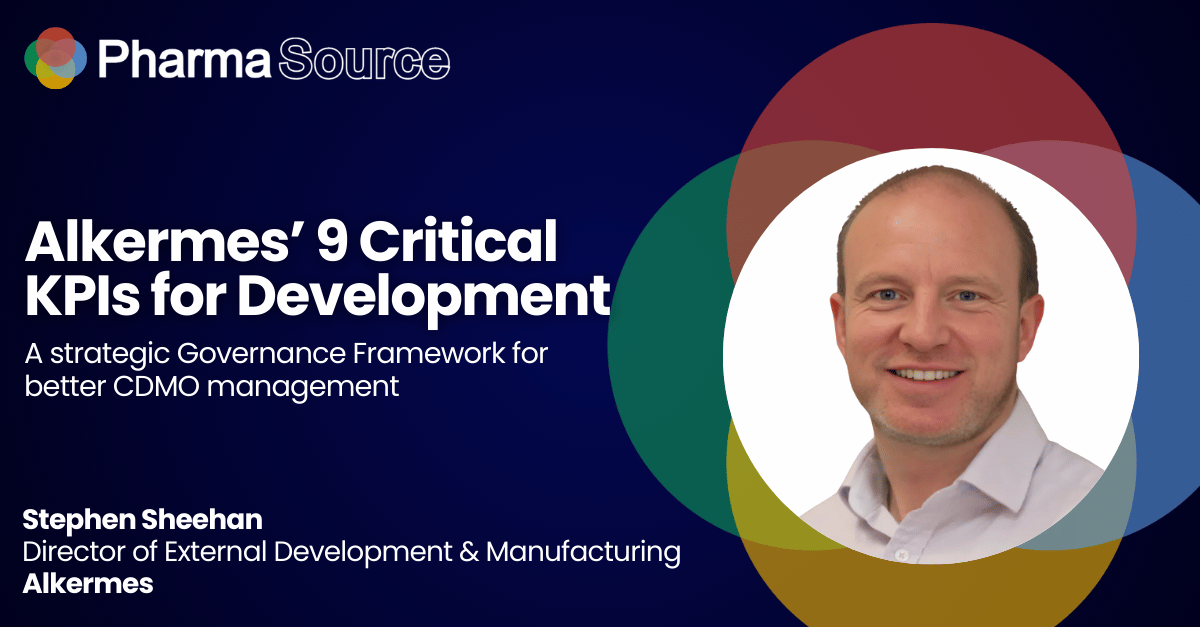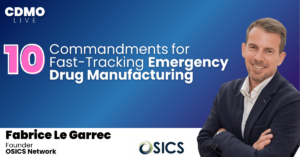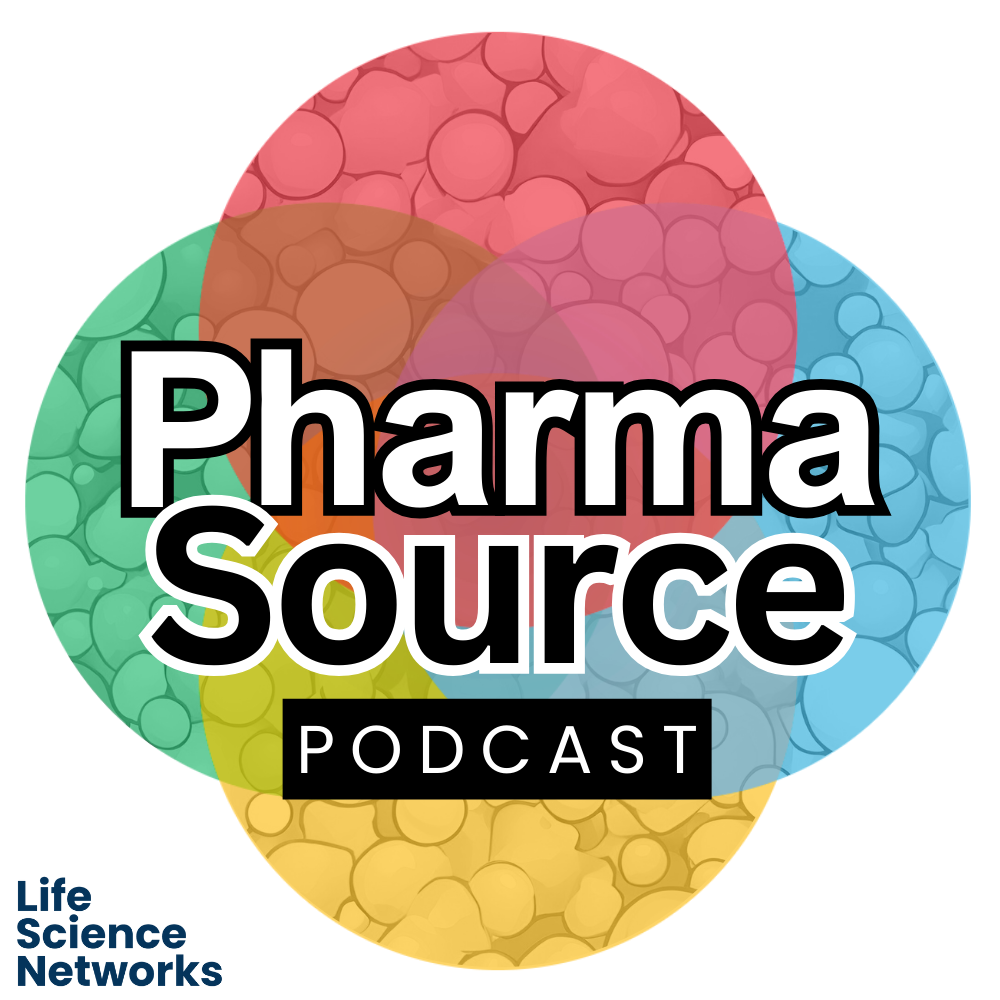Stephen Sheehan of Alkermes shares their new governance framework for high-performing CDMO partnerships.
As Director of External Development & Manufacturing at Alkermes, Stephen Sheehan brings over a decade of experience in pharmaceutical development. Having transitioned from small to large molecules, and implementing innovative management frameworks, he’s responsible for managing CDMOs involved in development activities and manufacturing of Alkermes’ drug development candidates.
In the latest episode of the PharmaSource podcast, Stephen reveals how a critical root cause investigation led to the development of a comprehensive CDMO governance framework. He shares valuable insights on building effective external manufacturing relationships, establishing meaningful key performance indicators (KPIs), and implementing sustainable practices in pharmaceutical manufacturing.
From Crisis to Framework: Building Better CDMO Relationships
Early in his role managing large molecule production, Stephen faced a significant root cause investigation that became a catalyst for change. Rather than immediately focusing on costs and liability, his team took a different approach: “The approach we took was to say, ‘Let’s not talk about the cost until we have the issue root-caused.’ This put that discussion to bed until we could focus on finding the actual cause.”
How information flowed and how issues were escalated during this critical window led to the development of a structured governance framework that Alkermes now uses across all CDMO relationships. The framework took six months to develop and involved extensive industry research, including peer-to-peer connects with various pharmaceutical companies.
Nine Critical KPIs for Development-Stage CDMO Management
The aim was to create a CDMO governance model to enable a best-in-class strategic & operational partnership that will achieve the business needs & streamline interactions & productivity with CDMOs. An effective governance model will enable Alkermes, in partnership with the CDMO to translate the business direction into a program plan which the CDMO can successfully execute.
Stephen emphasises that commercial KPIs don’t work for development CDMOs, leading to the creation of nine specific indicators:
1. Project Management – how CDMOs organize and execute their work.
2. Agility – crucial for responding to the rapid changes inherent in development work.
3. Team Engagement/Collaboration – how effectively the CDMO’s team works with Alkermes’ internal teams.
4. Problem Solving – particularly important when dealing with issues and failures.
5. Technical Performance – assesses the CDMO’s ability to execute complex development tasks.
6. Contract Delivery – evaluates the CDMO’s ability to efficiently handle contractual matters.
7. Project Delivery – measures the successful completion of projects within the defined scope, timeline, and budget, ensuring all project goals are met.
8. Quality Compliance – tracks adherence to quality standards and regulatory requirements.
9. Cost Performance – comparing actual costs against planned costs to measure financial efficiency
Stephen notes, “We rate suppliers on a scale from 1-4 for each. If you’re at a 1 or 2, you have to have an improvement plan in place. We were very specific on what poor looks like and what excellent looks like, so there’s no ambiguity in scoring.”
“What works well for us is asking the CDMO to self-rate because that means they have to go and have an introspective look at themselves and give an honest assessment.
You don’t want to have a situation where you rate somebody as a one or two and they come back with a four – that shows a massive misalignment of expectations.”
Three-Tier Governance Structure
The framework Alkermes implemented follows a carefully structured three-tier approach.
The first tier, Operational Delivery, focuses on day-to-day activities and team dynamics. Stephen explains, “We’ve tried to take away all non-technical elements away from the technical team. The business team meeting really enables the technical teams to focus only on technical items.”
The second tier, Executional Oversight, handles tactical matters and ensures proper implementation of strategic decisions. At this level, functional heads address cross-functional challenges and coordinate responses to escalated issues.
The final tier, Business Direction, ensures strategic alignment and future value. “At this level,” Stephen notes, “we’re making sure that strategically, we’re aligned and addressing any kind of future value opportunities.”
Future-Focused: Incorporating Sustainability
Sustainability has become a key focus in Alkermes’ CDMO management approach. The company is assessing green chemistry principles across its development processes, demonstrating their commitment to environmental responsibility. Stephen explains, “In Pharmaceutical Development one of our five goals is to build sustainability into all elements in pharmaceutical development.”
The company has also begun evaluating suppliers based on their EcoVadis scores, introducing a new dimension to their CDMO selection process. Looking ahead, Pharmaceutical Development is planning to pilot a program tracking air travel emissions with Stephen revealing, “That’s something that we had a pharma development leadership team meeting regarding last week, and that’s something that we’re thinking about piloting next year.”












 Stay ahead of trends and best practices
Stay ahead of trends and best practices
